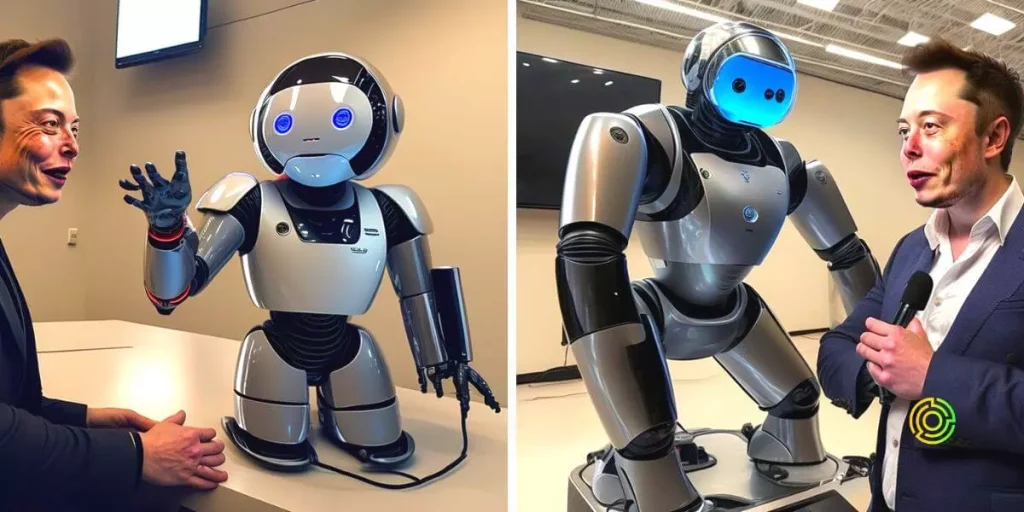Elon Musk, the CEO of Tesla and SpaceX, has recently made headlines for his plans to create an AI tool that will compete with ChatGPT. Musk has hired a former engineer from DeepMind, Igor Babuschkin, to work on this project.
Elon Musk’s plan to create an AI tool to compete with ChatGPT
Elon Musk has hired Igor Babuschkin, an engineer who recently left Google’s DeepMind unit, to work on a new project to create an AI tool that will compete with ChatGPT.
Musk has been a vocal critic of ChatGPT, a natural language processing tool that is used to create text-based content. Musk has stated that he believes ChatGPT is “terribly good” and that “we’re not far from a dangerously strong AI.”
Musk has a history of involvement with AI research. In 2015, he helped to found OpenAI, a non-profit organization that aimed to democratize AI technologies and provide a counterbalance to Google’s DeepMind. However, in 2018, Musk left the board of OpenAI, citing a potential conflict of interest with his work at Tesla.
— Elon Musk (@elonmusk) February 28, 2023
ChatGPT and Elon Musk
ChatGPT is a powerful natural language processing tool that is used to create text-based content. It has been hailed as a major breakthrough in AI research and has been used in a variety of applications, including chatbots, virtual assistants, and automated content creation.
However, Elon Musk has been a vocal critic of ChatGPT, stating that he believes it is “terribly good” and that “we’re not far from a dangerously strong AI.”
Musk has also expressed concerns about the danger of AI progress, warning that “the danger of training AI to wake up, i.e., lie, is real and worse than it seems.” Musk’s criticisms have not been limited to ChatGPT; he has also been critical of OpenAI, the organization he helped to found.
ChatGPT vs. Elon Musk’s alternative
The strengths of ChatGPT
Language proficiency: ChatGPT has been trained on a large corpus of text data, enabling it to understand and generate human-like language responses with a high degree of accuracy.
Versatility: ChatGPT can be programmed to respond to a wide range of topics and questions, making it suitable for use in a variety of applications, such as customer service, education, and entertainment.
Scalability: ChatGPT’s architecture allows it to be easily scaled to handle large volumes of traffic, making it ideal for use in high-traffic applications.
The advantages of Elon Musk’s alternative
Greater control: Elon Musk’s alternative is designed to be more transparent and controllable than traditional AI models, which can sometimes make decisions that are difficult to understand or explain.
Improved accuracy: Elon Musk’s alternative uses a neural network architecture that is specifically designed to improve the accuracy of AI models, particularly in areas such as image and speech recognition.
Privacy: Elon Musk’s alternative uses a decentralized architecture that ensures user data is kept private and secure.
Possible implications for the AI industry
Elon Musk’s alternative and ChatGPT represent different approaches to AI development, each with its own strengths and weaknesses. However, the emergence of alternative models such as Elon Musk’s could have significant implications for the future of the AI industry.
One possible outcome is that the industry will become more diverse, with a greater range of models and technologies being developed to address specific use cases and applications.
This could lead to a more competitive and innovative AI industry, with a wider range of options available to developers and businesses.
Another possible outcome is that AI models will become more transparent and controllable, as developers seek to address concerns around bias, accountability, and privacy.
This could lead to greater trust in AI systems, as users become more confident that their data is being used ethically and responsibly.
Overall, the emergence of alternative models such as Elon Musk’s could drive innovation and competition in the AI industry, while also helping to address some of the ethical and practical challenges associated with traditional AI models.
Conclusion
ChatGPT is a large language model trained by OpenAI that can perform various language-related tasks such as answering questions, generating text, and translating languages.
One of its strengths is its ability to adapt to different domains and generate human-like responses.
On the other hand, Elon Musk’s alternative approach involves creating more specialized AI systems that are focused on specific tasks rather than a general-purpose model like ChatGPT.
His approach is more targeted and aims to develop AI systems that can perform specific tasks more efficiently.
Both approaches have their advantages and disadvantages. ChatGPT is more versatile and can adapt to different domains, while Musk’s approach is more efficient and focused on specific tasks.
The implications of these approaches for the AI industry are yet to be fully understood, but it is clear that both approaches have their place in the future of AI.
Follow us on our social networks and keep up with everything in the Metaverse!
Twitter Linkedin Facebook Telegram Instagram Google News
